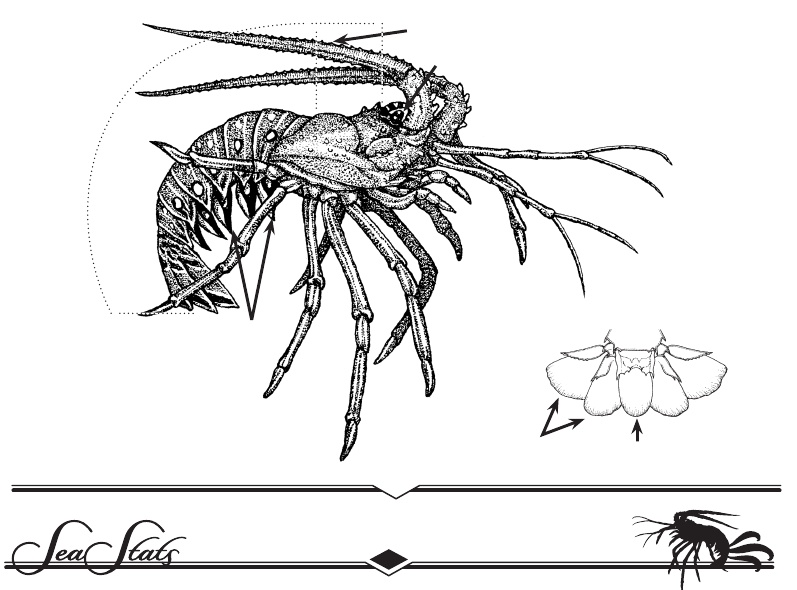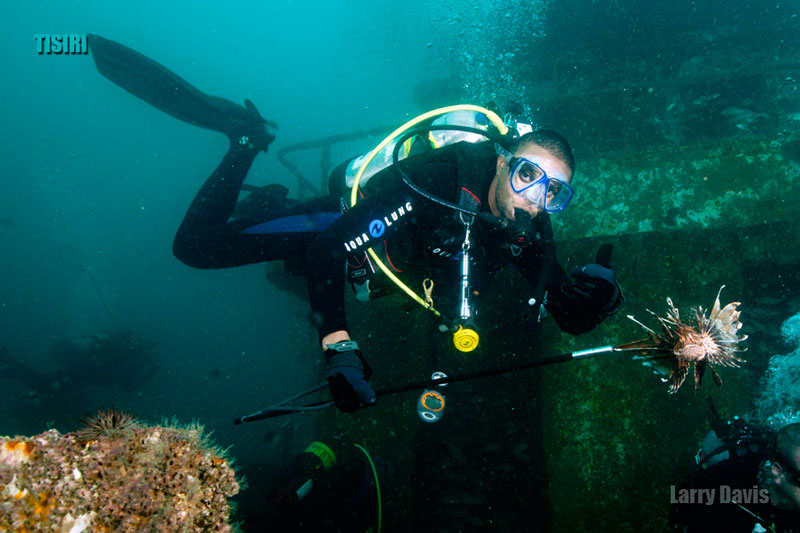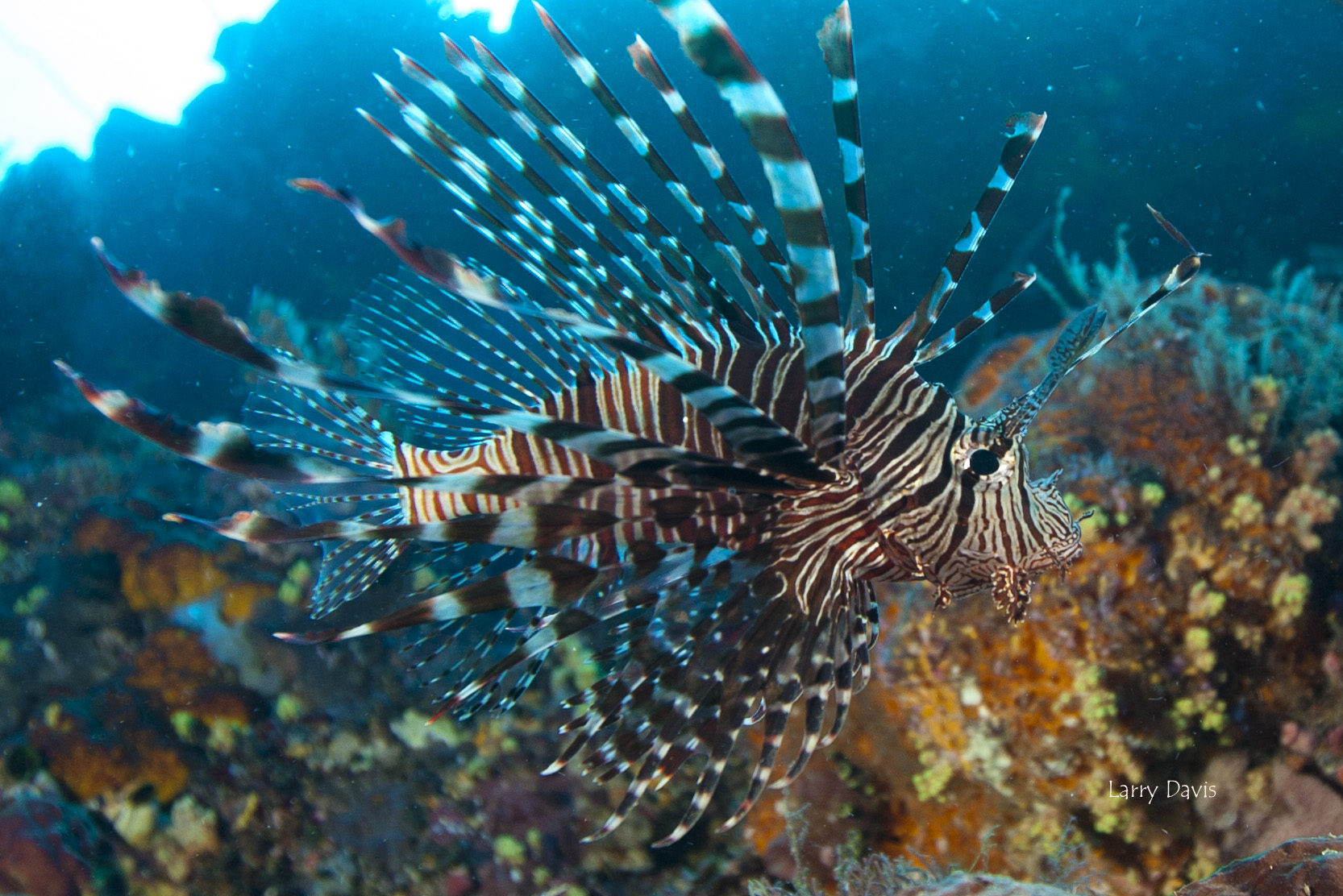Lionfish Harvest Charter Program
Program Overview Goal: The FWC Lionfish Control Team is asking for assistance from Florida’s divers and dive charter businesses to increase lionfish harvesting efforts . The program aims to incentivize dive charters to conduct lionfish-specific harvesting trips in an effort to increase the number of lionfish removed from Florida waters. To read more about how to apply for this program, click Requirements & Application Ready to purchase your lionfish hardvesting equipment? Click here to be taken to Zookeeper … Read entire article »
Filed under: Article, Boats, Diver, Earth, Featured, Fish, Lionfish, Preservation, Promotions, Reefs, Reference
Sunken Conservation
Sunken Conservation Three mini stories showing the efforts to create, maintain reefs and the invasion of lionfish off Florida shores. … Read entire article »
Filed under: Aquatica, Artificial Reefs, Cameras, Conservation, Divetalking, Earth, Education, Featured, Fish, Lionfish, ocean, Preservation, Promotions, Recognition, Reefs, Turtles, Video
Revolution – A must see. Rent or Buy your copy now
Yekra Player Yekra is a revolutionary new distribution network for feature films. Revolution Revolution is a feature documentary about opening your eyes, changing the world and fighting for something. A true life adventure following director Rob Stewart in the follow up to his hit Sharkwater, Revolution is an epic adventure into the evolution of life on earth and the revolution to save us.Discovering that there’s more in jeopardy than sharks, Stewart uncovers a grave secret threatening our own survival as a species, and embarks on a life-threatening adventure through 4 years and 15 countries into the greatest battle ever waged. Bringing you some of the most incredible wildlife spectacles ever recorded, audiences are brought face to face with sharks and cuddly lemurs, into the microscopic world of the pygmy seahorse, and on the hunt … Read entire article »
Filed under: Adv. Open Water, Article, Candidate, Conservation, Diver, Divetalking, Dolphin, Donation, Earth, Education, extinction, Featured, Lionfish, Manatee, Manta Rays, ocean, Open Water, Orca, Preservation, Products, Promotions, Recognition, Reefs, Reference, Sharks, Tuna, Turtles, Whales, Whaleshark
Florida Spiny Lobster Season – Things you need to know

Before reading the article below, take the quiz to evaluate your knowledge on the rules and regulations for harvesting Spiny Lobster off Florida waters. Lobster Seasons: The spiny lobster sport season is July 30-31 (always the last consecutive Wednesday and Thursday in July). The regular season begins August 6. Unless exempt, a recreational saltwater fishing license and a lobster permit are required to harvest spiny lobster. Commercial harvest is not allowed during the sport season. Florida Regulations: Spiny Lobster Sport … Read entire article »
Filed under: Artificial Reefs, Boats, Conservation, Diver, Divetalking, Earth, Education, extinction, Featured, Lobster, ocean, Open Water, Preservation, Reefs, Reference, Report, Spiny Lobster
Obama approves use of sonic cannons to explore for oil and gas off the Eastern Shore
The Obama administration has approved the use of sonic cannons to explore for oil and gas off the Eastern Shore. The Bureau of Ocean Energy Management on Friday formally approved guidelines for using air cannons in the Atlantic Ocean from Florida to Delaware. Energy companies could buy new oil and gas leases and begin drilling in 2018 if they find profitable reserves. The guidelines are meant to protect endangered whales and other creatures from the loud noises and increased vessel traffic, but the government’s environmental impact study estimates that more than 138,000 sea creatures could be harmed. The decision opens an area of the eastern seaboard larger than two Californias to exploration for the first time in decades. … Read entire article »
Filed under: Alert, Article, Artificial Reefs, Conservation, Divetalking, Earth, Education, Events, Featured, ocean, Preservation, Reefs, Reference, Report
Food Poisoning from Marine Toxins
By Vernon E. Ansdell Seafood poisoning from marine toxins is an underrecognized hazard for travelers, particularly in the tropics and subtropics. Furthermore, the risk is increasing because of factors such as climate change, coral reef damage, and spread of toxic algal blooms. CIGUATERA FISH POISONING Ciguatera fish poisoning occurs after eating reef fish contaminated with toxins such as ciguatoxin or maitotoxin. These potent toxins originate from small marine organisms (dinoflagellates) that grow on and around coral reefs. Dinoflagellates are ingested by herbivorous fish. The toxins are then concentrated as they pass up the food chain to large carnivorous fish (usually >6 lb, 2.7 kg) and finally to humans. Toxins are concentrated in fish liver, intestinals, roe, and head. Gambierdiscus toxicus, which produces ciguatoxin, may proliferate on dead coral reefs more quickly than other dinoflagellates. … Read entire article »
Filed under: Artificial Reefs, Boats, Conservation, Diver, Divetalking, Earth, Education, Emergency/FirstAid, Featured, Fish, ocean, Open Water, Reefs, Reference, Report, Training
NE Florida’s 2nd Annual Lionfish Derby

Come on… You know you love to hate lionfish. To help the state control lionfish population, NE Florida is conducting its 2nd annual lionfish derby. Last years event handed out thousands of dollars in cash awards and more. Be part of this movement. Sign up and join us August 8 for the captains meeting and August 9th for the hunt and harvest. Proceeds benefit the DSAJ (Down Syndrome Association of Jacksonville) and REEF as well as local … Read entire article »
Filed under: Alert, Article, Artificial Reefs, Boats, Conservation, Contest, Diver, Divetalking, Donation, Earth, Events, extinction, Featured, Lionfish, ocean, Open Water, Promotions, Reefs, Reference, Report
Hammerhead now under U.S. Federal protection under the Endangered Species Act.
The federal government today listed four key populations of scalloped hammerhead sharks under the Endangered Species Act. The National Oceanic and Atmospheric Administration, for the first time in history, gave a shark species federal protections under the Endangered Species Act. The scalloped hammerhead shark is considered globally endangered by the International Union for the Conservation of Nature (IUCN). The species is targeted primarily for its fins but is also killed as “by-catch” in fisheries targeting other species. NOAA Fisheries listed scalloped hammerhead sharks inhabiting the Eastern Atlantic Ocean and Eastern Pacific Ocean as “endangered.” The agency listed scalloped hammerhead sharks living in the Central and Southwest Atlantic and Indo-West Pacific as the less-serious status of “threatened.” The federal agency declined to list scalloped hammerhead sharks that inhabit the Northwest Atlantic or Central Pacific. “This … Read entire article »
Filed under: Article, Conservation, Divetalking, Earth, Education, extinction, Featured, Fish, ocean, Preservation, Reference, Report, Sharks
Expansion of US marine protected zone could double world reserves
By Matt McGrath Environment correspondent, BBC News The US plans to create the world’s biggest marine protected area (MPA) in the middle of the Pacific Ocean. The White House will extend an existing protected area, known as the Pacific Remote Islands Marine National Monument. Fishing and drilling would be banned from an area that could eventually cover two million sq km. The extended zone would double the world’s fully protected marine reserves. Rare species The Pacific Remote Islands Area is controlled by the US and consists of seven scattered islands, atolls and reefs that lie between Hawaii and American Samoa. Essentially uninhabited, the waters that surround these remote islands are home to a wide range of species including corals, seabirds, sharks and vegetation not found anywhere else in the world. In 2009, President Bush declared … Read entire article »
Filed under: Alert, Artificial Reefs, Conservation, Divetalking, Earth, Education, extinction, Featured, Fish, ocean, Preservation, Recognition, Reefs, Reference, Report
Florida Turns to Smartphone App in Battle Against Invasive Lionfish

ORLANDO Fla. – Florida has a new phone app to help cull the invasion of its waters by the spiked lionfish, a venomous species that is devouring other fish and harming reef ecosystems. The state is home to more than 500 non-native species, but few as rampant in the wild as the marauding lionfish, which is fast-reproducing and has a voracious appetite. It preys on native fish such as yellowtail snapper, Nassau grouper and banded coral … Read entire article »
Filed under: Artificial Reefs, Conservation, Diver, Earth, Education, Featured, Lionfish, ocean, Preservation, Reefs, Reference, Report
Gulf Oil Spill
The Gulf oil spill is recognized as the worst oil spill in U.S. history. Within days of the April 20, 2010 explosion and sinking of the Deepwater Horizon oil rig in the Gulf of Mexico that killed 11 people, underwater cameras revealed the BP pipe was leaking oil and gas on the ocean floor about 42 miles off the coast of Louisiana. By the time the well was capped on July 15, 2010 (87 days later), an estimated 4.9 million barrels of oil had leaked into the Gulf. The well was located over 5,000 feet beneath the water’s surface in the vast frontier of the deep sea—a permanently dark environment, marked by constantly cold temperatures just above freezing and extremely high pressures. Scientists divide the ocean into at least three zones, … Read entire article »
Filed under: Article, Conservation, Earth, Education, ocean, Preservation
Slow life – A must watch
Daniel Stoupin is a PhD student in the University of Queensland. His research is in the field marine biology. Mixing his passions of biology and photography, Daniel has produce stunning photos and videos. “My interest in photography, especially in photomicrography, came from the scientific background. Working with microscopic protists during my first research years and later swimming countless nights with glowing plankton in the ocean opened my eyes on the diversity and complexity of life that we can’t see without tools. Although I am obsessed with marine life, particularly microscopic one and whatever glows in the dark, my photography interests are growing and eventually this website will change its name and become a lot more diverse in content.” – Daniel Stoupin http://vimeo.com/danielstoupin/slowlife More pictures from Daniel ““Slow” marine animals show their secret life under high … Read entire article »
Filed under: Article, Conservation, Diver, Divetalking, Earth, Education, Featured, Fish, ocean, Photography, Recognition, Reefs, Reference
Florida Fish and Wildlife Conservation Commission, FWC
April, 2014 Commission Meeting Time: 8:30am each day Dates: April 15 – 17, 2014 Place: Florida Public Safety Institute 85 Academy Drive Havana, FL 32333 https://www.tcc.fl.edu/Current/Academics/FPSI/Pages/Directions.aspx This meeting is open to the public 8:30 a.m., Wednesday, April 16, there will be a presentation on the subject of LIonfsh Lionfish – Lionfish are invasive marine species that pose a threat to native marine species and ecosystems. Three draft rules will be proposed to prevent further lionfish introductions and facilitate efforts to remove these non-native predators. Harvest by divers using either spearing gear or hand held nets is currently the primary means of lionfish population control. Persons diving by means of a rebreather are currently prohibited from harvesting any marine species in state waters. A proposed draft rule would create an exception to allow persons using rebreathers to harvest lionfish. In addition, there are several … Read entire article »
Filed under: Artificial Reefs, Divetalking, Earth, Education, extinction, Featured, Fish, Lionfish, ocean, Preservation, Rebreather, Reefs, Reference, Report
